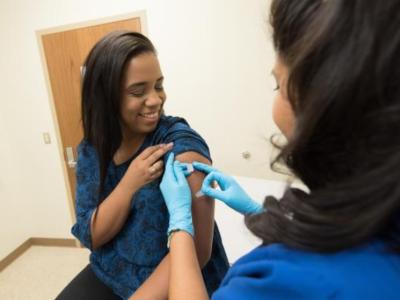New guidelines from the Infectious Diseases Society of America (IDSA) and the American Thoracic Society (ATS) recommend that adult hospital patients with two common types of hospital-acquired infections receive shorter courses of antibiotics for treatment.
The guidelines, published in Clinical Infectious Diseases, recommend that adult patients with hospital-acquired pneumonia (HAP) and ventilator-associated pneumonia (VAP) receive a 7-day course of antibiotic therapy, rather than a longer course of 8 to 15 days.
Guidelines issued in 2005 recommended different lengths of antibiotic treatment based on the bacterium causing the infection.
The authors of the new guidelines said their review of the latest evidence indicates that a short course of antibiotics does not reduce the benefits of therapy, and that the benefits—reduced exposure to antibiotic-related side effects, reduced antibiotic resistance, and reduced costs—outweigh the potential harms.
The change is meant to "ensure safe and effective treatment while limiting the development of antibiotic resistance," IDSA said in a news release.
HAP and VAP account for 20% to 25% of all hospital-acquired infections, according to IDSA, and can cause serious complications, such as respiratory failure, septic shock, and kidney failure. They can be fatal 10% to 15% of the time.
HAP is defined as pneumonia that occurs within 48 hours of hospitalization but is not associated with a ventilator, while VAP refers to pneumonia that occurs within 48 hours of a patient being put on a ventilator. HAP is typically less severe.
Antibiograms can help guide treatment
The new guidelines also recommended that hospitals develop an antibiogram to determine which strains of bacteria are causing the infection, and how resistant those strains are to antibiotics. The purpose of that recommendation is to ensure that doctors are choosing the most appropriate treatment for patients.
"Once clinicians are updated regularly on what bugs are causing VAP and HAP in their hospitals as well as their sensitivities to specific antibiotics, they can choose the most effective treatment," said Andre C. Kalil, MD, MPH, lead author of the guidelines and director of the Transplant Infectious Diseases Program at the University of Nebraska Medical Center in Omaha.
"This helps individualize care, ensuring patients will be treated with the correct antibiotic as soon as possible."
Antibiograms are a periodic analysis of local strains of bacteria and their susceptibility to antibiotics. They can also be used to track resistance trends. The IDSA guidelines suggest that the antibiograms should be specific to each hospital, so that doctors know what pathogens are causing HAP and VAP infections in their patients.
The authors said the guidelines, which are based on evidence derived from systematic literature reviews and meta-analyses of randomized trials, cannot account for individual variation among patients and are not intended to supplant physician judgment with respect to particular patients or clinical situations. IDSA considers adherence to the guidelines to be voluntary.
See also:
Jul 14 IDSA/ATS guidelines
Jul 14 IDSA news release
























